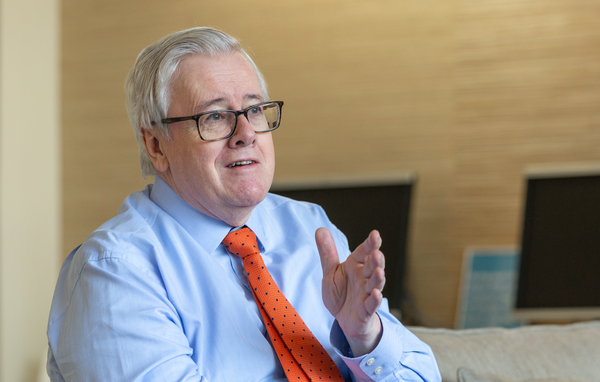London is receiving too few vaccines
London is the region receiving the second fewest vaccine doses per head in England

Sadiq Khan, the London Mayor has appealed to the government, asking that London receive a greater share of vaccine doses.
Vaccine doses are being distributed to vaccination hubs in regions based on a “fair share basis” linked to population. However, the London Mayor has expressed concern in a letter to vaccines minister Nadhim Zahawi that London has only received 10% of the national vaccine supply despite making up 14% of the population.
In addition to this, London is the region with the highest rate of cases in the country with the majority of boroughs still reporting rates higher than 800 per 100,000.
Khan said that “The situation in London is critical with rates of the virus extremely high, which is why it’s so important that vulnerable Londoners are given access to the vaccine as soon as possible”
Regional vaccine data released by the NHS has shown that the regions of the Midlands, North East and Yorkshire and the South East have received the highest number of vaccines in the past month, each receiving more that 400,000 doses.
This is in contrast to London which received just over 235,000 doses over the same time period making it the second lowest regional vaccine receiver in England.
With Health Secretary Matt Hancock admitting that vaccine supply is the major bottleneck preventing an increase in vaccination rates, this directly manifests itself as a slower rate of vaccination for Londoners.
The situation in London is critical with rates of the virus extremely high, which is why it’s so important that vulnerable Londoners are given access to the vaccine as soon as possible
With the London mayoral elections postponed to May 2021, Khan is keen to prove to Londoners that he has fought for their interests. Polling conducted last November found he had a 20+ lead over his closest competitor, Conservative candidate Sean Bailey but frustration over London’s sluggish vaccination may worry him.
The efforts of vaccinators risks, however, being undermined by the prevalence of COVID in younger demographic with 20-29-year olds having the highest COVID rate of 879 per 100,000. As this group is one of the lowest priorities for vaccination, social distancing is the only measure to combat the spread of the virus among them. Given the low level of compliance among this age group, there is a risk that herd immunity and safety for those vulnerable and yet unable to take the vaccine will be delayed.







